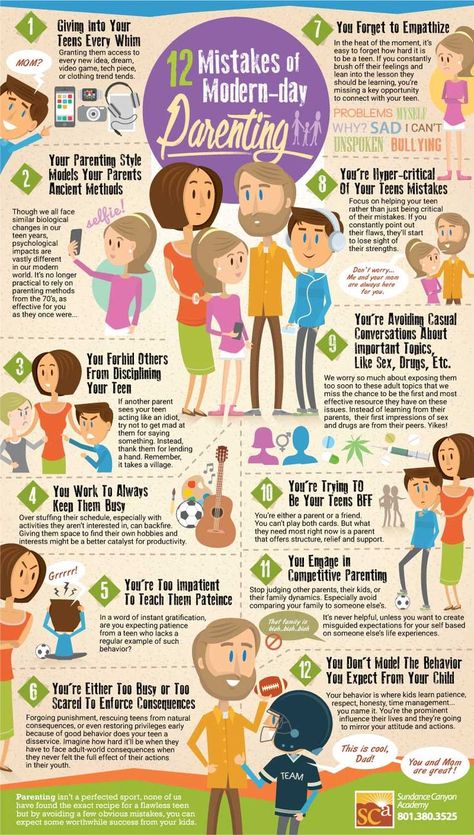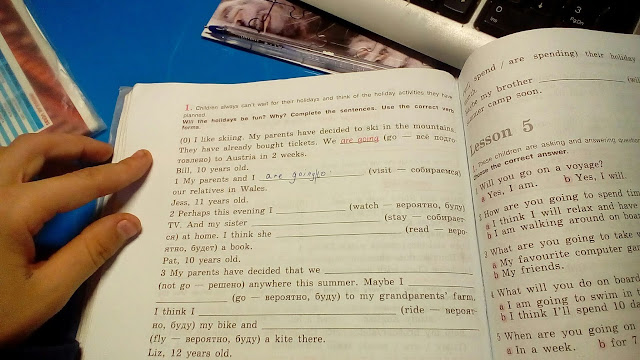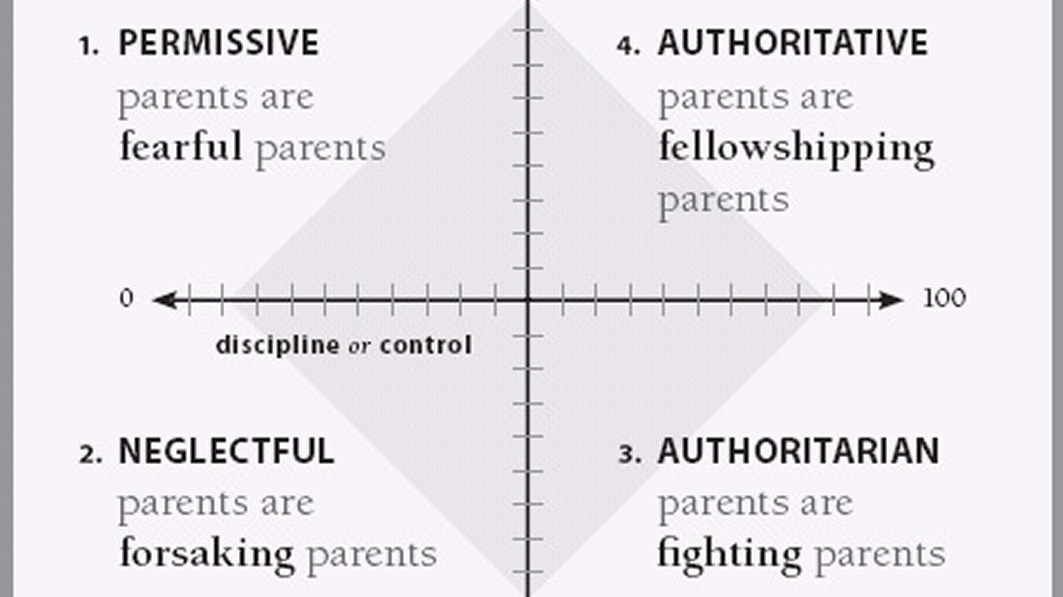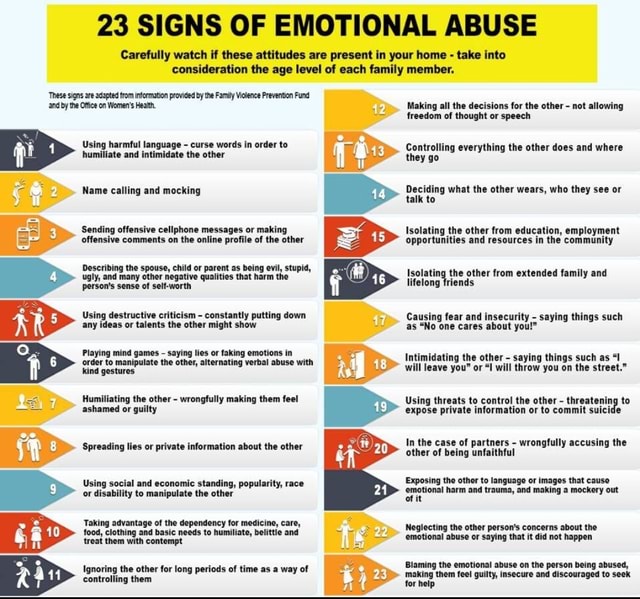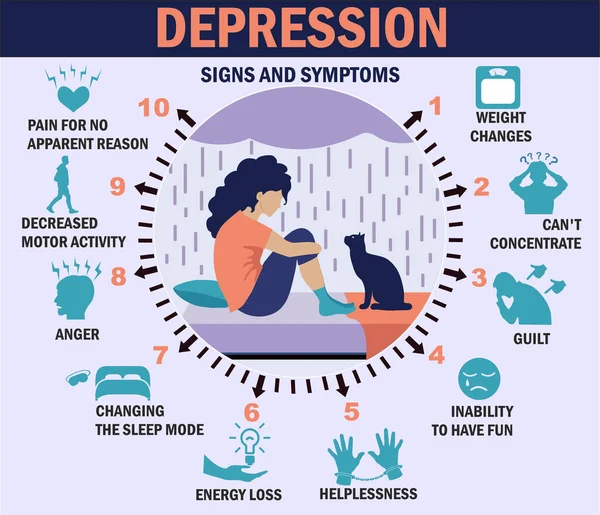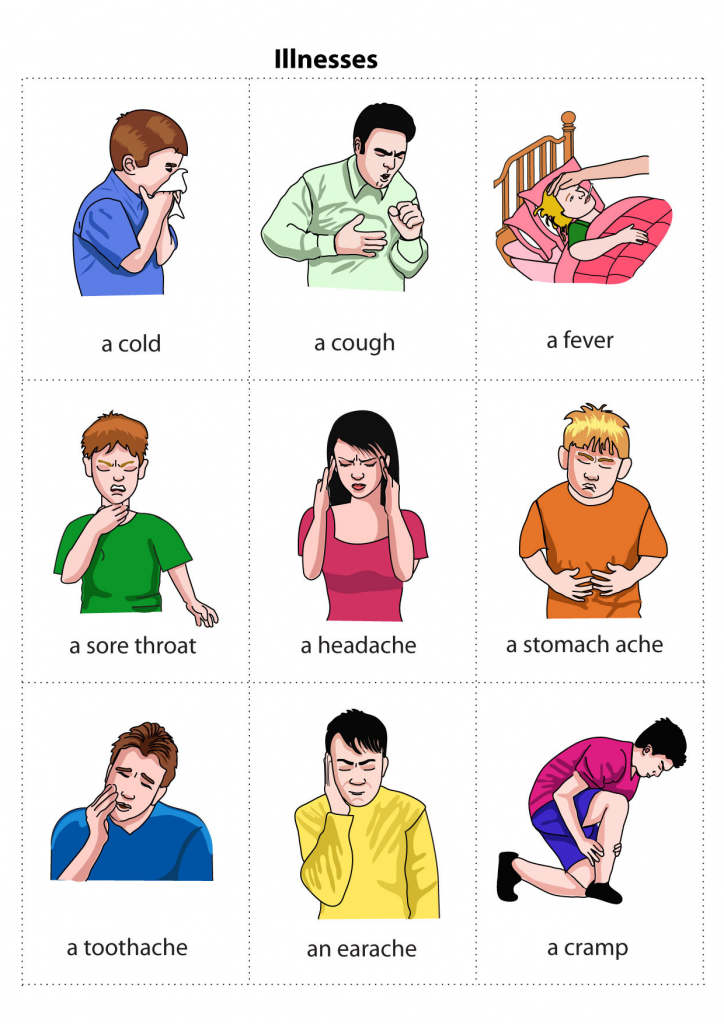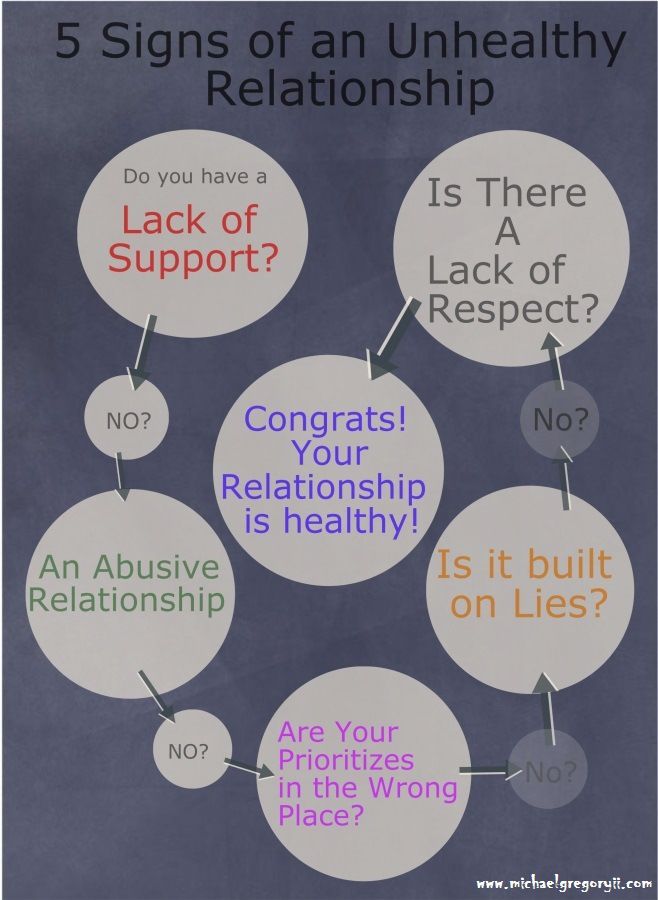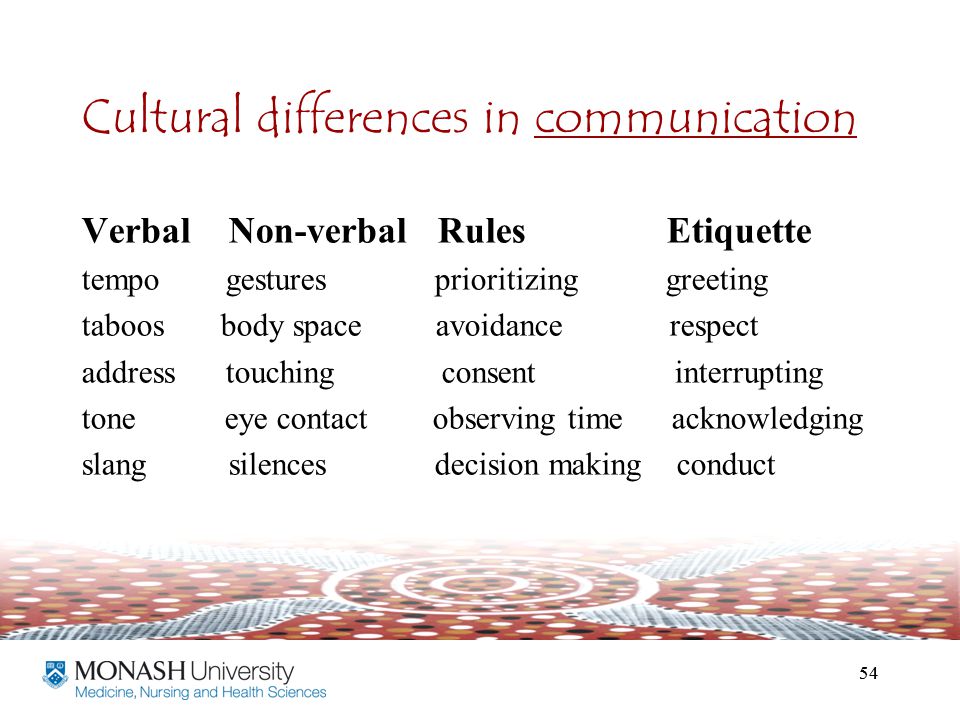Parenting teen tip
Parenting teenagers | Top Ten Tips for parents and families
Top ten tips for parents and families
Read them below or download the PDF file here.
Being a parent isn't always easy. The teenage years can be particularly difficult as teenagers may behave like adults one minute and children the next. Here are some tips which you may find helpful.
- 1) Conflict is normal
-
Conflict with your teenager is not always a bad thing - your teenager is learning to become independent. Try to stay calm. Listen to your teenager's point of view and decide what is worth taking a stand on and what isn't.
- 2) Give clear guidelines
-
Set out clear guidelines about what is acceptable.
Tell teenager where you're going, who with and when you'll be back - expect them to do the same. Teenagers need clear guidelines just as much as younger children - setting boundaries shows you care.
- 3) Respect their views
-
Don't expect teenagers to agree with everything you say. The teenage years are a time of testing opinions and people. Sometimes parents and teenagers have to agree to differ. Your teenager is more likely to respect your views if you respect theirs.
- 4) Show interest
-
Let your teenager know that you are interested in what they do at home and at school. Offer support and guidance with school work and revision.
 Keep an eye on where they are and who they are with, encourage them to talk about how they feel - but beware of turning interest into pressure.
Keep an eye on where they are and who they are with, encourage them to talk about how they feel - but beware of turning interest into pressure. - 5) Spend time together
-
Your child is maturing and your relationship may be changing. Spend time doing everyday things together. The teenage years are exciting and enjoyable. Have fun - they'll soon be grown up. Let them know you will always be there for them.
- 6) Make time for talking and listening
-
Teenagers say that their parents do not listen to them. Let your teenager know that you have time to talk. Share your values with them but don't impose them. If your teenager wants to talk, make time to listen.

- 7) Give them space
-
We all need time for ourselves. Teenagers need their own space, time for themselves and the right not to tell their parents everything about their lives. Respect your teenager's right to privacy and try to remember what it was like to be a teenager.
- 8) Encourage them
-
Giving encouragement and taking an interest in your teenager is as important as praising them. Praise them for their efforts and let them know when they do something that pleases you. Don't be afraid to tell them that you love them, even if you get no response.
- 9) Share your life experiences
-
Let them know that you've made mistakes and tell them some of the things that you would do differently if you had the chance.
 Let them learn from the consequences of their actions - don't protect them too much.
Let them learn from the consequences of their actions - don't protect them too much. - 10) Look after yourself
-
Parents today have a difficult job to do but parents don't need to be perfect. Make sure you look after yourself and have people to talk to when you need to. Try to spend sometime thinking about your own life and priorities.
12 Tips for Peaceful Parenting Your Teen!
You may not feel like you have much influence on your child these days, but teens’ behavior is highly correlated with the strength of their bonds with their parents.
Good relationships between teenagers and their parents, as rated by both, are positively correlated with school success and general happiness as rated by the teen, and also by those around her.
By contrast, weak or conflictual parent/teen relationships are correlated with early sexual activity, experimentation with drugs and alcohol, the teen's involvement in violence (as either perpetrator or victim), and suicide.
How do you parent this blossoming person who sometimes seems to be becoming a stranger?
1. Remember you're a parent, AND a friend.
Teens crave the security of knowing their parents understand them, appreciate them, and love them no matter what--so they do want the relationship to be a form of friendship. But they also need to feel like they have some independence, so sometimes you may feel a bit shut out. If you can navigate your closeness in an accepting way that doesn't take advantage of your role as parent to tell your child what to do, he's more likely to open up and share with you.
Does a close friendship erode your teen's respect for you? No. Don't you respect your friends, and treasure those who are really there for you emotionally? If you offer your teen respect, consideration, and authenticity, that's what you'll receive in return.
And as close as you want to be to your teen, sometimes you will have to pull rank and say No. If you're doing it often, that's a red flag that something is wrong. But sometimes your teen will be looking to you to set limits they can't set for themselves. Sometimes you'll need to stick by your values and say no, whether that's to an unsupervised party or a very late bedtime. And, of course, sometimes your teen will be able to use your guidance to come up with a win-win solution that answers your concerns.
2. Establish dependable together time.
Be sure to check in every single day. A few minutes of conversation while you're cleaning up after dinner or right before bedtime can keep you tuned in and establish open communication. Even teens who seem to have forgotten who their parents are the other 23 hours a day often respond well to a goodnight hug and check-in chat once they're lounging in bed. In addition to these short daily check-ins, establish a regular weekly routine for doing something special with your teen, even if it's just going out for ice cream or a walk together.
3. Parent actively and appropriately.
Don’t invite rebellion by refusing to acknowledge that your son or daughter is growing up and needs more freedom. But don’t be afraid to ask where your kids are going, who they’ll be with and what they’ll be doing. Get to know your kids’ friends and their parents so you’re familiar with their activities.
4. Try to be there after school.
The biggest danger zone for drug use and sex isn't Saturday night; it's between 3 and 6 PM on weekdays. Arrange flex time at work if you can. If your child will be with friends, make sure there’s adult supervision, not just an older sibling.
5. Keep your standards high.
Your teen wants to be his or her best self. Our job as parents is to support our teens in doing that. But don't expect your child to achieve goals you decide for her; she needs to begin charting her own goals now, with the support of a parent who adores her just as she is and believes that she can do anything she aims to. Support your teen's passions and explorations as she finds her unique voice.
Support your teen's passions and explorations as she finds her unique voice.
6. Make it a high priority to eat meals together
...as often as you can. Meals are a great opportunity to talk about the days' events, to unwind, reinforce and bond. They're also your best opportunity to keep in touch with your teen's life and challenges, and to spot brewing problems. Finally, an important factor in kids' happiness and overall success is whether they feel they get time to "just hang out and talk" with parents every day. Click here for more on Dinner.
7. Keep the lines of communication humming.
If you don't know what's going on, you lose all hope of influencing the outcome. Click here for more on Becoming a Brilliant Listener, Getting Your Kids to Talk with You, and Family Conversations your Teen Will Love.
8. Encourage good self-care
...such as the nine and half hours of sleep every teen needs, and a good diet. Coffee is a bad idea for early teens because it interferes with normal sleep patterns. Too much screen time, especially in the hour before bedtime, reduces melatonin production and makes it harder for kids to fall asleep at night.
Too much screen time, especially in the hour before bedtime, reduces melatonin production and makes it harder for kids to fall asleep at night.
9. Continue family meetings.
Held regularly at a mutually agreed upon time, family meetings provide a forum for discussing triumphs, grievances, sibling disagreements, schedules, any topic of concern to a family member. Ground rules help. Everyone gets a chance to talk; one person talks at a time without interruption; everyone listens, and only positive, constructive feedback is allowed. To get resistant teens to join in, combine the get-together with incentives such as post-meeting pizza or ice cream, or assign them important roles such as recording secretary or rule enforcer. Click here for more on Family Meetings.
10. Keep kids safe and connected to the family by keeping computers in your common space.
It can be hard for parents to track what teens do on line because they usually know more about the computer than we do. But research shows that he'll be less tempted to spend time doing things you'd disapprove of if the computer is in a common space, where you can walk by and glance at what he's doing. Kids live online these days, but he can still stay connected to his family if online is in the heart of your home.
But research shows that he'll be less tempted to spend time doing things you'd disapprove of if the computer is in a common space, where you can walk by and glance at what he's doing. Kids live online these days, but he can still stay connected to his family if online is in the heart of your home.
11. Don't push your teen into independence before he's ready.
Every teen has his own timetable for blossoming into an independent person. Real independence includes close relationships with others, and it never needs to include rebelliousness. It is NOT healthy for your child to feel that you're pushing him into independence -- that only leads to him becoming overly dependent on the peer group for validation. If he isn't ready to go to sleep away camp for a month, then he isn't ready. Sooner or later, he will be. Respect his timetable.
12. Make agreements and teach your child to make repairs.
If you've raised your child without punishment, he will almost certainly be close to you. Because he doesn't want to damage the trust between you, he won't lie to you, and he won't usually infringe on your limits. If he does, ask him how he can make repairs, including repairing your trust.
Because he doesn't want to damage the trust between you, he won't lie to you, and he won't usually infringe on your limits. If he does, ask him how he can make repairs, including repairing your trust.
13. What if you've raised your child with punishment, and now she's breaking your rules and lying to you?
It's never too late to help her learn to take responsibility, but to start, she has to value her relationship with you. That means you need to stop punishing, and start listening and connecting. You also need to insist that she find ways to make repairs. That's a tricky dance, because punishment will make things worse, so she has to choose the repair-- and yet you are still insisting that she do so. No, it's not a punishment -- it's a way for her to make things better when she messes up, which is what all adults need to learn to do. But she'll only understand it this way if she wants to please you, so if you need to go to counseling together to create that relationship, don't hesitate.
14. Stay connected even as she moves into the world.
If we've accepted our child's dependency needs AND affirmed her development into her own separate person, she'll stay fiercely connected to us even as her focus shifts to peers, high school and the passions that make her soul sing.
It's appropriate for teens to want to spend more time with their peers than their parents as they get older, but kids who are well grounded in their families will respond well to parents' efforts to stay connected. And parents who have bonded adequately with their children at each earlier stage will feel invested enough in their teens to stay connected, even if a lot of effort is required.
It’s critical, during the teen years, for parents to remain their children’s emotional and moral compass. Kids will begin to experiment with intimate relationships outside the family, but to do that successfully, they still rely on those intimate relationships at home remaining solid. That means that a 14 year old who focuses mostly outwards is probably looking for something he wasn’t getting at home.
That means that a 14 year old who focuses mostly outwards is probably looking for something he wasn’t getting at home.
We need to invite our children to rely on us emotionally until they’re emotionally ready to depend on themselves. Too often, in our culture, we let teenagers transfer their dependency outside the family, with disastrous results. Teens often give up a great deal of themselves in pursuit of the closeness they crave, only to crash against the hard reality that other teens aren’t developmentally able to offer them what they need to flourish as independent young adults.
You may not be at the top of your teen's list nowadays, but work like the dickens to stay close, and don't take it for granted that your child will now push you away. That’s a sign of a damaged relationship. Don't give up. It’s never too late in your relationship with your child to do repair work and move closer.
PSYCHOLOGIST'S TIPS TO PARENTS OF TEENAGERS | The official site of the Kabardino-Balkarian State University.
 HM. BerbekovaOfficial site of the Kabardino-Balkarian State University named after I.I. HM. Berbekova
HM. BerbekovaOfficial site of the Kabardino-Balkarian State University named after I.I. HM. Berbekova PSYCHOLOGIST'S ADVICE TO PARENTS OF TEENAGERS
- Interest and help. Parental support generates a trusting relationship between children and parents and entails high self-esteem of adolescents, contributes to academic success and moral development. Insufficient parental support, on the contrary, can lead to a child's low self-esteem, poor learning, impulsive actions, poor social adaptation, unstable and antisocial behavior. nine0010
- The ability of parents to listen, understand and empathize. The inability of parents to empathize (empathy), their lack of emotional susceptibility and understanding of the thoughts and feelings of the child can lead to the development of indifference in the child. Respect for a teenager, communication of parents with him contribute to the establishment of harmonious relations in the family.
- Love of parents and positive emotions in family relationships are associated with intimacy, affection, love, receptivity; family members at the same time show mutual interest and responsiveness.
 If negative emotions prevail in the family, then coldness, hostility, rejection are observed, which can lead either to the predominance of the child's need for love (in adulthood), or to the formation of isolation, coldness, inability to express his love to loved ones, including to children. nine0010
If negative emotions prevail in the family, then coldness, hostility, rejection are observed, which can lead either to the predominance of the child's need for love (in adulthood), or to the formation of isolation, coldness, inability to express his love to loved ones, including to children. nine0010 - Parental recognition and approval.
- Trust in the child. Distrust of children, as a rule, indicates that parents are projecting their own fears, anxieties or feelings of guilt onto them. Insecure parents (or those who have experienced certain difficulties in the past) are more likely to fear for their children than others.
- Treating a child as an independent and adult person. The achievement of independence by a teenager occurs in the process of individualization, when he is engaged in the formation of his own individuality and at the same time establishes new ties with his parents. The teenager is trying to change the relationship with his parents, while trying to maintain the same communication, affection and trust.
 In order to show their own individuality, adolescents are guided by a system of values that is different from that of their parents, they set themselves other goals, other interests and other points of view. nine0010
In order to show their own individuality, adolescents are guided by a system of values that is different from that of their parents, they set themselves other goals, other interests and other points of view. nine0010 - Parental guidance. The most functional are those families where parents show flexibility, adaptability and tolerance in their views and behavior. Parents who are inflexible in raising teenagers refuse to reconsider their views and change their point of view; they are intolerant, overly demanding, always critical and place unjustified hopes on children that do not correspond to their age. This adversely affects the self-esteem of a teenager, suppresses the development of his personality, which ultimately leads to stressful situations in the relationship between parents and children. nine0010
- Parental example: ability to set a good role model; follow the same principles taught to children. Since the process of identification in adolescents partly takes place in the family, those of them who are proud of their parents, as a rule, feel quite comfortable in the world around them.

- Cooperation with the college. If something worries you in the behavior of the child, try to meet as soon as possible and discuss it with the class teacher, teacher-psychologist, head of the educational department, deputy director for educational work. nine0010
- Ask who your child is talking to.
Remember: the main helpers of parents in difficult situations are patience, attention and understanding.
Speaking with a teenager in an adult language
Parents often face the problem that in adolescence, children become more withdrawn, uncontrollable and deliberately contradict adults. Often this arises from the fact that parents are too worried about their children: for their safety, or, for example, academic performance. But children have already grown up and are learning to take responsibility for their decisions. nine0005
Teenagers would like to ask their parents for advice on how best to implement their own ideas and decisions. They want to communicate with their parents "on an equal footing." But often parents, worrying about their children, try to control all the actions of teenagers. Children, counting on the help of their parents, face many prohibitions and perceive this as distrust. Therefore, it is necessary and very important to find the strength in yourself to admit that your teenager has already grown up and is worthy of talking to you in an “adult language”. nine0005
They want to communicate with their parents "on an equal footing." But often parents, worrying about their children, try to control all the actions of teenagers. Children, counting on the help of their parents, face many prohibitions and perceive this as distrust. Therefore, it is necessary and very important to find the strength in yourself to admit that your teenager has already grown up and is worthy of talking to you in an “adult language”. nine0005
Recommendations for parents
Of course, everything depends on the specific situation and the method of influencing a teenager must be selected individually. We offer several options:
- Create a non-standard situation when a teenager expects resistance, distrust from your side, and in return receives sincerity and help in resolving his issues.
- Support one of the teenager's hobbies, show interest in hobbies and hobbies. nine0010
- Establish a family tradition when a family gathers together in the evening and shares the events that happened to each of them during the day.
Psychologist's advice to parents of teenagers
- Appreciate the frankness of your children, be sincerely interested in their problems.
- Communicate as equals, the tone of the order will not work in your favor. Let them know that you understand them.
- You can not make fun of them, ridicule feelings, belittling their significance. Try to treat your children with respect, remember their vulnerability and vulnerability. nine0010
- Do not get irritated or aggressive, be calm and restrained. Remember that your rudeness will cause them to respond.
- Do not talk about the object of your child's passion in a dismissive, insulting tone, thereby you will humiliate him.
- In no case should one rudely and categorically break off relations between teenagers, because they are just learning to communicate with each other and most often they don’t even think about anything bad.
- Invite his (her) girlfriend (friend) to your place, get to know - this will allow you to get an objective, more believable, and not unfounded idea of who your child is dating.
 It is better if you allow them to meet at your home so that they do not have to look for random and questionable places to meet. nine0010
It is better if you allow them to meet at your home so that they do not have to look for random and questionable places to meet. nine0010 - Tell them about yourself, your first love story - this will help you find mutual understanding with your child.
- If you manage to establish friendly relations with him, you will have the opportunity not only to control his behavior, but also to influence his actions.
- Remember that, on the one hand, a teenager is in dire need of parents' help, facing many problems, and on the other hand, he seeks to protect his inner world of intimate experiences from unceremonious and rude intrusion, and he has every right to do so. nine0010
Tips for parents
- Agree with anxiety and displeasure. This is an age full of contradictions and anxiety. There is nothing abnormal in the fact that a teenager's behavior is changeable and unpredictable, that he rushes from one extreme to another, loves his parents and hates them at the same time, etc.

- Avoid trying to appear too understanding. Avoid statements such as "I totally understand how you feel." Teenagers are sure that they are unique, unique in their own way. Their feelings are even for themselves something new, personal. They see themselves as complex and mysterious beings, and they are genuinely distressed when, in the eyes of others, their experiences look simple and naive. nine0010
- Distinguish between consent and permission, tolerance and authorization. Parents may be tolerant of undesirable actions of children (for example, a new hairstyle) - that is, actions that were not sanctioned, not encouraged by parents.
- Talk and act like an adult. Don't compete with your teenager by behaving like him, using youth jargon. Adolescents deliberately adopt a lifestyle that is different from that of their parents, and this is also part of the process of forming their personality. Thus begins their departure from their parents. nine0010
- Approve and support your teenager's strengths.
 Limit comments related to the bad side of the teenager's character. A reminder of shortcomings can greatly slow down communication between a teenager and a parent. It is the multi-step task of the parent to create relationships and provide the adolescent with life experiences that will build character and personality.
Limit comments related to the bad side of the teenager's character. A reminder of shortcomings can greatly slow down communication between a teenager and a parent. It is the multi-step task of the parent to create relationships and provide the adolescent with life experiences that will build character and personality. - Avoid highlighting weaknesses. When other weaknesses of character are discovered, the teenager feels pain. And if the cause of this pain is the parents, then it does not go away longer. nine0010
- Help your teenager think for himself. Don't increase dependence on you. Speak in a language that will help develop independence: "It's your choice," "You decide for yourself," "You can be responsible for it," "It's your decision." Parents should lead their children to independent decision-making and teach them to doubt the correctness of the opinions of their peers.
- Truth and compassion give birth to love. Do not rush to clarify those facts that, in your opinion, have been perverted.
 Parents who are quick to punish will not teach you to respect the truth. Some parents are too quick to report exactly where, when, and why they were right. Often teenagers meet such statements with stubbornness and anger. Thus, sometimes the truth turns into a deadly weapon for family relationships, if the only goal is to get to the bottom of the truth. nine0010
Parents who are quick to punish will not teach you to respect the truth. Some parents are too quick to report exactly where, when, and why they were right. Often teenagers meet such statements with stubbornness and anger. Thus, sometimes the truth turns into a deadly weapon for family relationships, if the only goal is to get to the bottom of the truth. nine0010 - Respect the need for privacy. This principle requires some distance, which may seem impossible to some parents.
- Avoid loud phrases and sermons. Try talking instead of lecturing. Avoid statements like “When I was your age…”, “This hurts me more than you…”.
- Do not label. “You are stupid and lazy. You will never achieve anything." Such "hanging" leads to the fact that the prediction is fulfilled, of course. After all, children tend to conform to what their parents think of them. nine0010
- Avoid ambiguous statements. A parent's appeal to a teenager should contain one piece of information: an understandable prohibition, benevolent permission, or an open opportunity to make a choice.

- Avoid extremes: giving complete freedom is just as wrong as "tightening the screws".
- Keep a sense of humor.
Parents of teenagers should know that…
Teenagers are characterized by the following characterological reactions:
- The reaction of emancipation is manifested in the desire to free oneself from the guardianship and control of elders. It can be expressed in a persistent desire to always and everywhere act "in one's own way", in violation of the orders and rules established by the elders. This reaction can be aggravated by overprotection by elders, petty control, deprivation of minimal independence and freedom.
- The reaction of the opposition can be caused by excessive claims to the child, an unbearable burden for him - the requirement to be an excellent student in school, to excel in language, music, etc. But more often this reaction is the result of a loss or a sharp decrease in the usual attention from relatives.
 The manifestation of the reaction of the opposition in adolescents is very diverse - from skipping classes and running away from home to suicide attempts, most often demonstrative. nine0010
The manifestation of the reaction of the opposition in adolescents is very diverse - from skipping classes and running away from home to suicide attempts, most often demonstrative. nine0010
For this purpose, deliberate flaunting of alcoholism or drug use can be used. All these demonstrations seem to say: "Pay attention to me - otherwise I will be lost!"
- The reaction of compensation is the desire to make up for one's weakness and failure in one area with success in another. A sickly, physically weak boy compensates for his weakness with excellent academic success, allowing him to gain authority among his peers. Conversely, difficulties in learning can be compensated for by “bold” behavior, leadership in behavioral violations, in the worst case, participation in asocial companies, committing offenses. nine0010
- Hyper compensation reaction. Here, they persistently and persistently achieve high results precisely in the area where they are weak. It is precisely because of hypercompensation that shy and timid teenagers, when choosing sports, prefer brute force - boxing, sambo, and a teenager who suffered from stuttering enthusiastically devotes himself to artistic reading and performs at amateur concerts.
- Grouping reaction with peers. Adolescents have an urgent need for their own identity and belonging to a group. Adolescents do not yet have a clearly conscious "I-image" and often feel more secure in an environment of their own kind. The feeling of "I" is still difficult to isolate from "We" - adolescents become members of various informal organizations. The group for a teenager becomes the main regulator of behavior. nine0010
This may explain the well-known fact that the vast majority of delinquency among adolescents is committed in a group. A pattern is observed: the younger the teenager, the larger the composition of the group. As they grow older, the number of group members decreases. At the age of 16-18, the group consists of 2-3 people.
Tips for parents on raising teenagers, recommendations from psychologists
Dear customers, from 12/30/2022 to 01/08/2023 our online store is closed. All orders placed during this period will be processed on 09. 01.2023.
01.2023.
The whole truth about how to choose a backpack for a first grader.
- Articles
- Tips for parents on raising teenagers, recommendations from psychologists
Adolescence is not in vain called "difficult" or "transitional". In the period from 12-13 to 18 years old, physical, hormonal and psychological metamorphoses occur with the child, and it is extremely important for parents at this time to correctly build a line of communication with their child so that family relations remain harmonious and trusting. nine0005
In our material, we have collected for you proven recommendations from child psychologists and practical advice for parents on raising teenagers.
Features of adolescence
From about the age of 13, teenagers begin to ask themselves the fundamental questions “who am I?”, “What is my place in this world?”, “What do I want to do in life?” etc. Together with active physiological and hormonal changes, this leaves a serious imprint on the psychological state, so it is very important for parents not to miss this period and engage in education. nine0005
nine0005
In adolescents, to one degree or another, regardless of upbringing at an earlier age, the following manifestations are observed:
-
A sharp change in mood and emotional fluctuations that can be triggered by any, even the most insignificant event.
-
Increased need for recognition from outsiders and sensitivity to negative evaluation from them. nine0005
-
In adolescents, one can often see categorical judgments and rejection of advice from adults. It is difficult to convince them if they have formed a certain point of view on what is happening.
-
Excessive self-confidence and even arrogance in actions.
-
Inconsistency. Adolescents, feeling vulnerable, show their independence, and with complexes and shyness they try to fight with contrived swagger. nine0005
It is not necessary that your teenager will have all of the above features of the worldview and behavior. Each person is an individual and each will have its own set of psychological characteristics that you need to be able to work with correctly.
Each person is an individual and each will have its own set of psychological characteristics that you need to be able to work with correctly.
For parents, this does not mean at all that you need to take certain steps and actions, you just need to learn to be flexible, understanding and more loving so that a teenager goes through the process of becoming a person without psychological trauma. nine0005
Advice for parents on raising teenagers
The first and most important recommendation to parents is to learn to distinguish a real problem from a far-fetched one. Every parent has an ideal image of a child in their head, but in practice it often turns out differently. For example, if a teenager dyed their hair blue and you don't like it, is it worth it to yell at the child, punish him and force him to wash off the dye? Definitely not. After all, such a desire to express oneself does not pose any threat to either society, or your family, or the child himself. On the contrary, the desire to walk around the city at night is not safe, and here it is already necessary to really take action and conduct conversations about the dangers of such actions. nine0005
nine0005
It is necessary to lay the foundations of education for teenagers at an earlier age, when children are more inclined to obey and not argue with their parents. For example, if at an early age the child did not have a clear daily routine, then it will be very difficult for you to prove to the teenager that you need to go to bed on time, and allocate no more than 1-2 hours a day to games at the computer. By the way, in our article “Daily routine of a student. We draw up the right routine ”you can learn about all the nuances of the correct preparation of the daily routine. nine0005
Do not overload your teenager with study and extracurricular activities. It often happens that children become executors not of their own, but of their parental ambitions, and this makes them feel driven out and dissatisfied. Parents need to learn to listen not to their own, but to the desires of a teenager.
To reach your child, try to talk to him on an equal footing.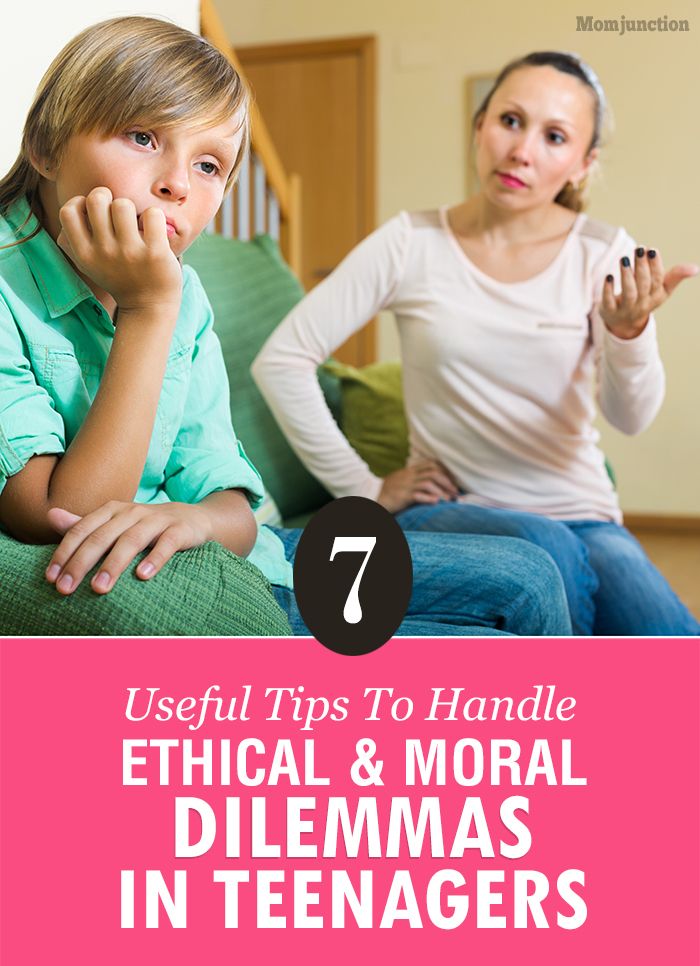 Always justify your position. Saying “No because no” is a failed tactic in advance. nine0005
Always justify your position. Saying “No because no” is a failed tactic in advance. nine0005
Respect the personal boundaries of a teenager and remember that good parenting is not the imposition of certain rules by force, but an open dialogue in which a teenager, with the help of adults, comes to the right conclusions on his own.
Psychologist's advice on raising a teenager
The most difficult thing in raising a teenager is to maintain a trusting and open relationship between the child and parents. If a teenager opens up to you about some personal experiences or advises on various issues, always show sincere interest and try. If a child trusts you with a secret, never reveal it to others. Just one episode of betrayal or neglect of a teenager's problem is enough for him to close and stop coming to you with his problems. nine0005
Treat with understanding the first love of a teenager. It is on the basis of love relationships that conflicts often occur between parents and children.